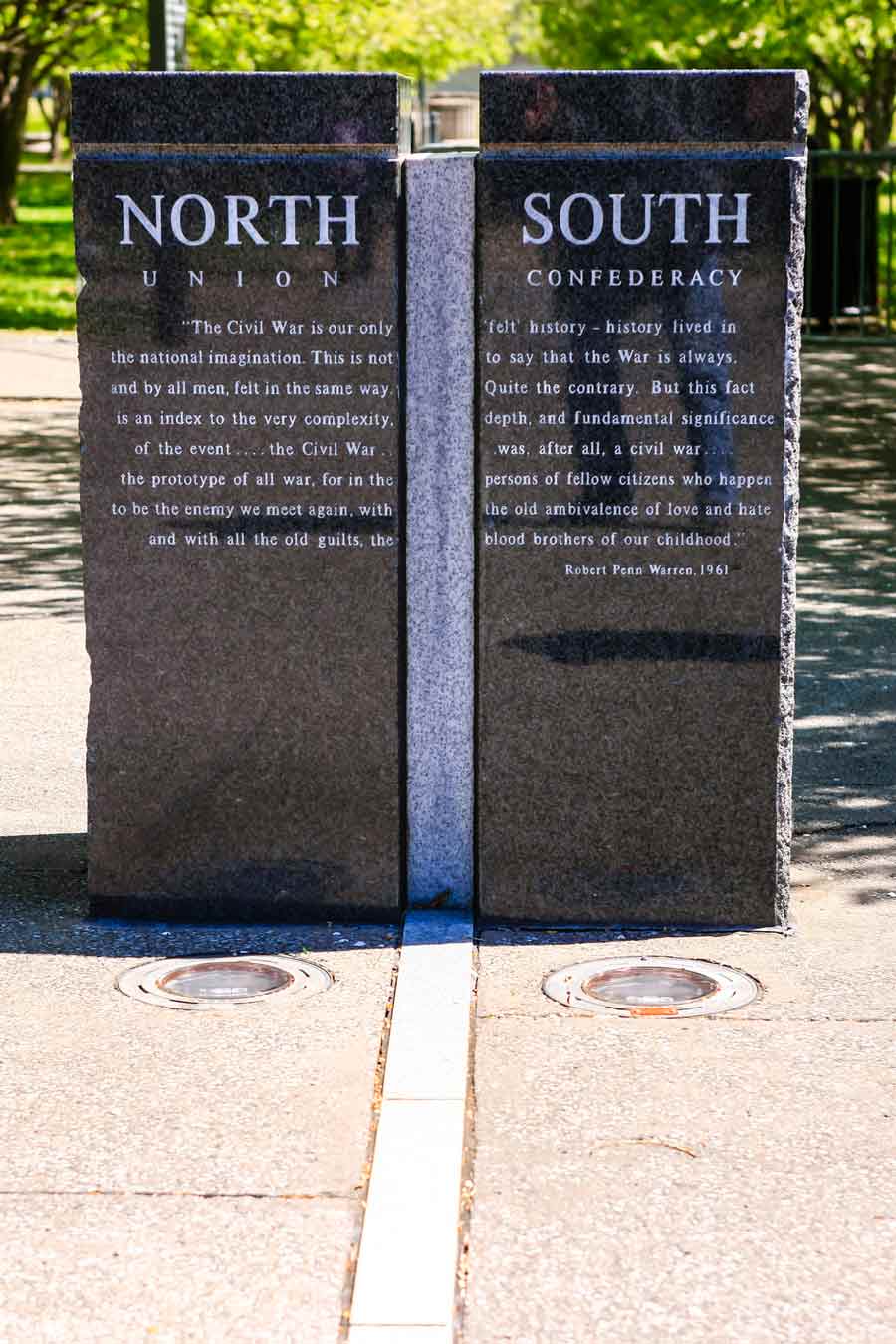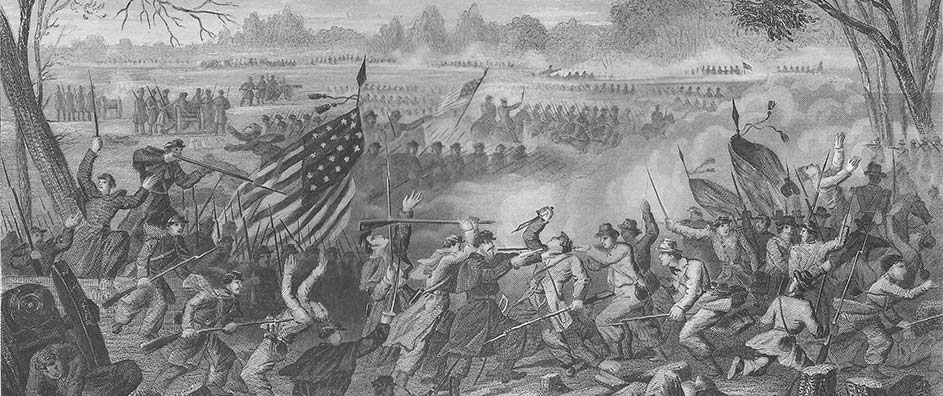The views expressed in our content reflect individual perspectives and do not represent the authoritative views of the Baha'i Faith.
ox·y·mo·ron n. [< Gr oxys, sharp + moros, foolish] a figure of speech in which contradictory ideas or terms are combined (Ex.: thunderous silence)
You’ve probably heard all the old, funny oxymora: jumbo shrimp, military intelligence, civil wars. Some people call those kinds of phrases “contradictions in terms,” but I like the ancient Greek meaning: sharp and foolish.
Any country that experiences a civil war knows the intense contradiction between sharp and foolish.

The line that divides the Union North and the Confederate South passing through the Bicentennial Capitol State Park in Nashville
If you want to prove that to yourself, and you’re traveling through the United States, just visit a restored plantation in the South. Make sure you choose one that has become a historical museum, with docents and tours and a Confederate flag on display. Take the tour, and listen carefully to how the docents, typically local volunteers, describe America’s Civil War. I’ve done that a few times, and the phrase I’ve heard, more than any other, is “the War of Northern Aggression.”
That means, to me, that we have a very long historical memory; and that civil wars strike at the heart of a nation’s ability to heal its wounds.
When a country invades, colonizes or attempts to take over another country, those “foreign” wars can devastate entire civilizations. But a civil war arguably has the potential for even greater destructive power, because it pits countryman against countryman and creates tensions and scores that may take generations before they’re settled. Just think about America’s long history of slavery, which led to its Civil War, and to the Jim Crow era that followed—and then think about the symbols of that war like the Confederate flag, and how it still flies over Southern state capitols.
Today, World Wars have dwindled to zero, but horribly destructive civil wars still rage in the Middle East, Africa, Eastern Europe and Asia. Those wars don’t only destroy lives and property, they have the potential to destroy entire ways of life, generating chaos and destabilizing entire regions for many, many generations to come.
The kind of national agony civil wars exemplify, the Baha’i teachings say, can create enormous chaos and human suffering—but can also, in the longer term, have positive and unifying effects:
Could anything less than the fire of a civil war with all its violence and vicissitudes — a war that nearly rent the great American Republic — have welded the states, not only into a Union of independent units, but into a Nation, in spite of all the ethnic differences that characterized its component parts? That so fundamental a revolution, involving such far-reaching changes in the structure of society, can be achieved through the ordinary processes of diplomacy and education seems highly improbable. We have but to turn our gaze to humanity’s blood-stained history to realize that nothing short of intense mental as well as physical agony has been able to precipitate those epoch-making changes that constitute the greatest landmarks in the history of human civilization. – Shoghi Effendi, The World Order of Baha’u’llah, p. 45.
The Baha’i teachings say that kind of intense mental and physical agony can sometimes ultimately lead to its exact opposite: peace. When we fight and kill each other, especially in a civil war, the hostilities have to eventually end. No war can go on forever. From a military victory to a loss of political will to pure exhaustion, every war must someday find a reason to cease its wanton carnage.
Studies show that civil wars typically last an average of ten years. If those civil wars become proxy battles between superpowers, they can last even longer. But as I write this essay, the news has just announced that the horrible, five-year-long Syrian civil war finally has a scheduled, negotiated truce in a few days—because the United States and Russia have agreed to implement that truce. We can only hope that it will hold, that unlike previous truces, the slaughter will stop.
That has now happened in Colombia. After a 52-year war between the Colombian government and the FARC, after 220,000 deaths, after the displacement of six million people, that horrible civil war has finally ended. As a result, the entire Western Hemisphere has achieved peace, for the first time in human memory. Perhaps now we can begin to extend that western peace eastward, until it reaches all the way around the world:
I desire for you that… in spirit and heart you will strive and endeavour until the world of war become the world of peace; the world of darkness the world of light; satanic conduct be turned into heavenly behaviour; the ruined places become built up; the sword be turned into the olive branch; the flash of hatred become the flame of the love of God and the noise of the gun the voice of the kingdom: the soldiers of death the soldiers of life; all the nations of the world one nation; all races as one race; and all national anthems harmonized into one melody. – Abdu’l-Baha, Star of the West, Volume 5, p. 9.
Next: The World: Less Violent than Ever?
You May Also Like
Comments

















tribunal for peace-keeping that the
Baha'i scriptures prescribed for us
well over a hundred years ago, the
Syrian carnage would have been
stopped right away. The divisions
Mr. Cooper sees, and even the wider
but still limiting nationalistic loyalty
many of us have, are sabotaging
the realization of that tribunal, our
only hope.